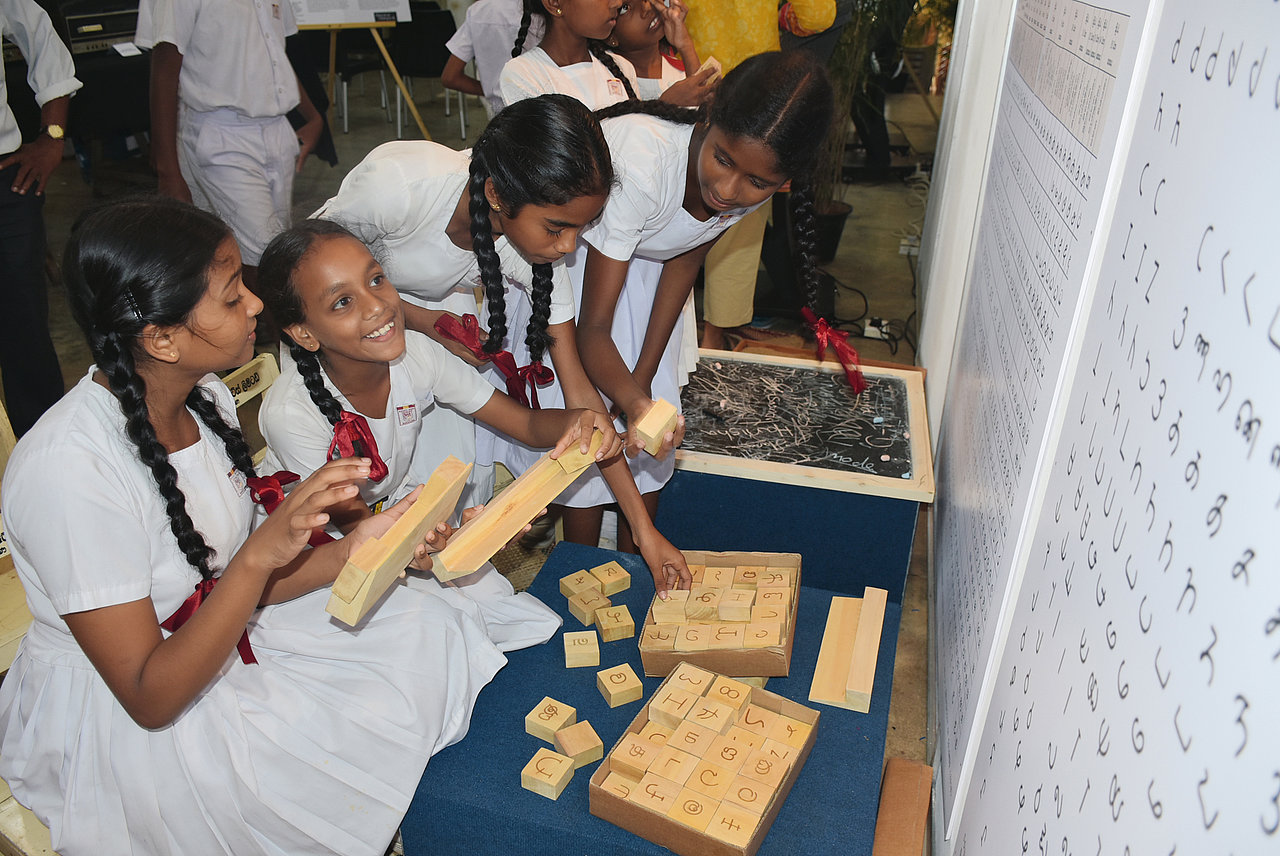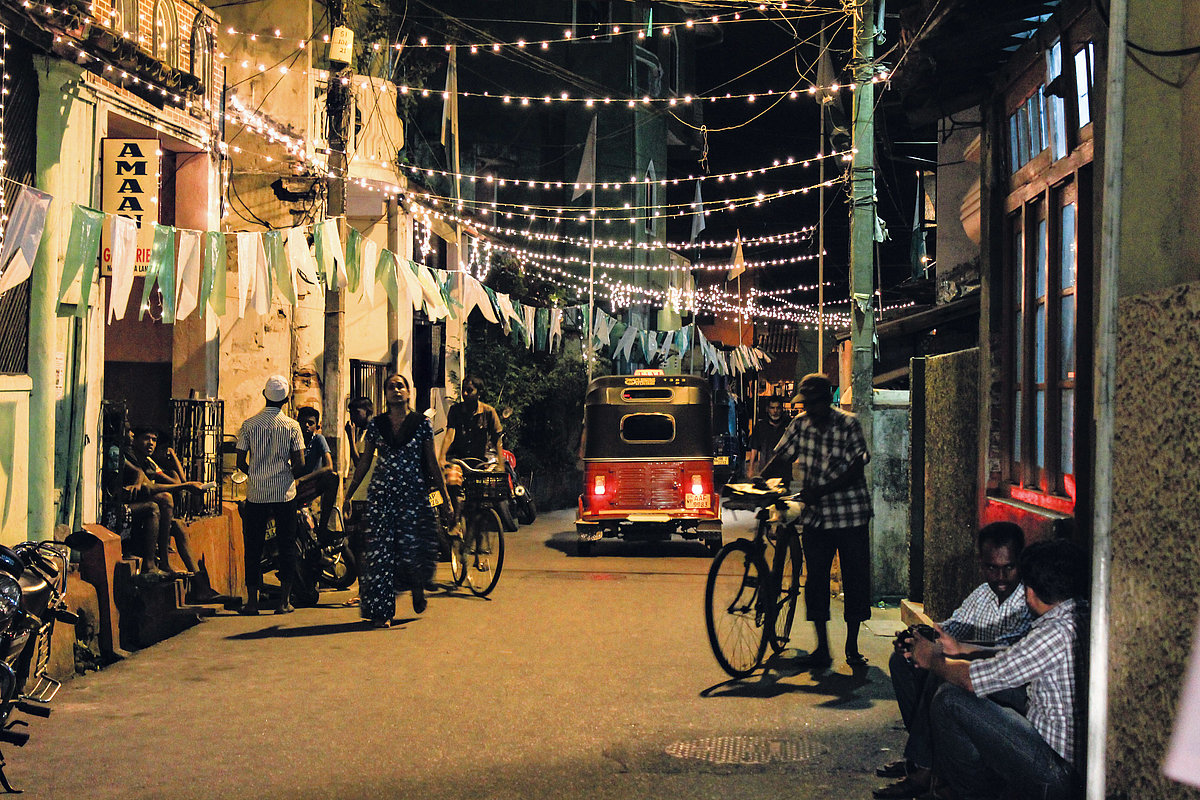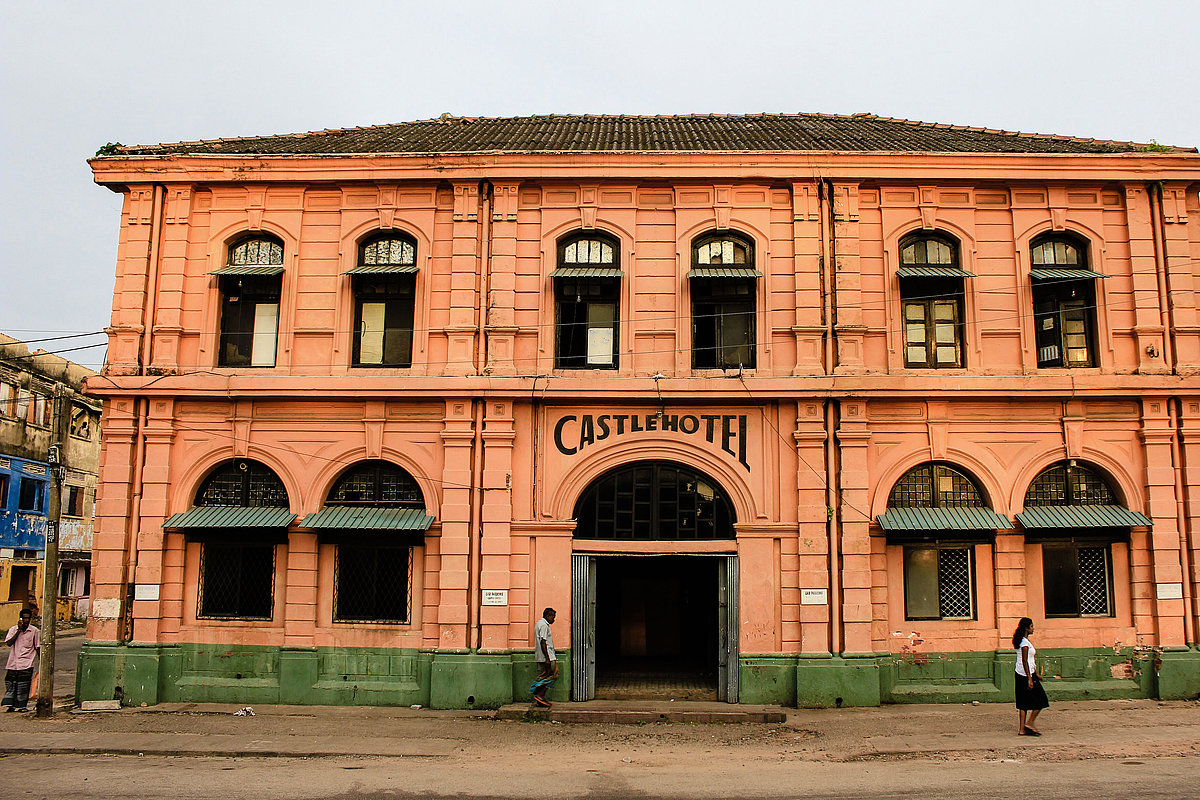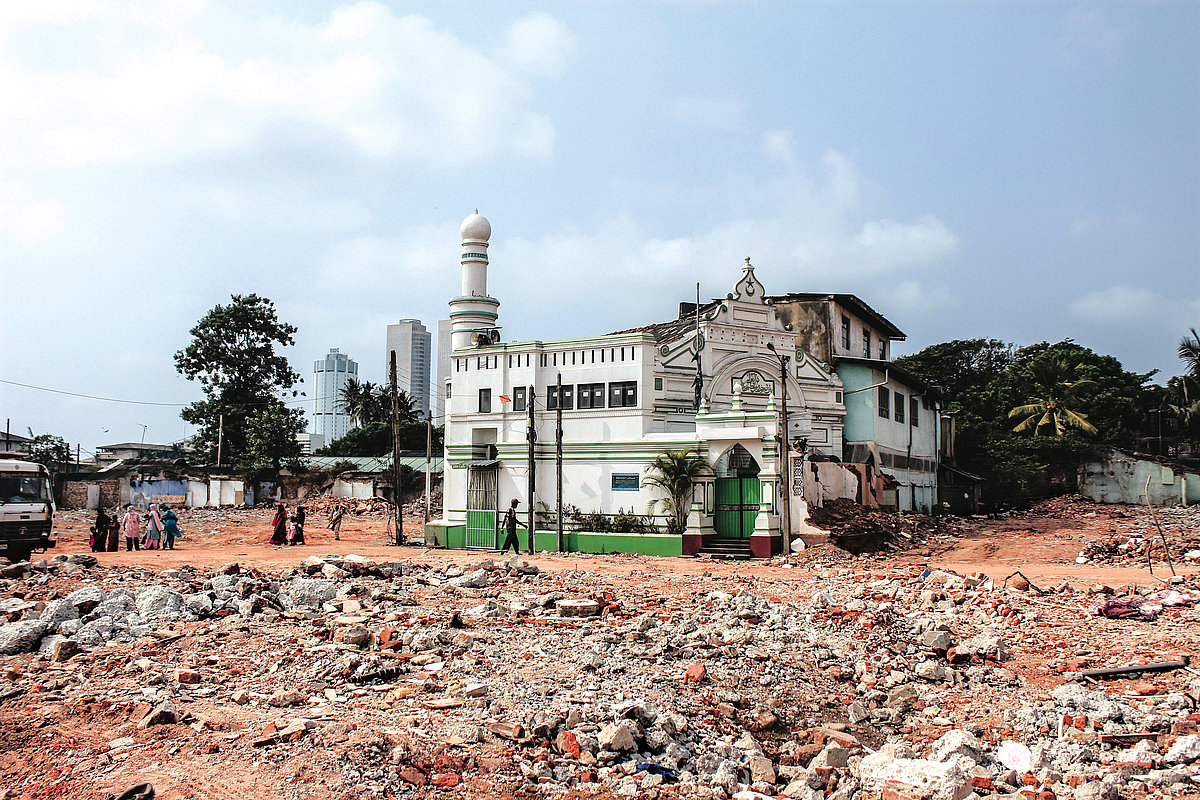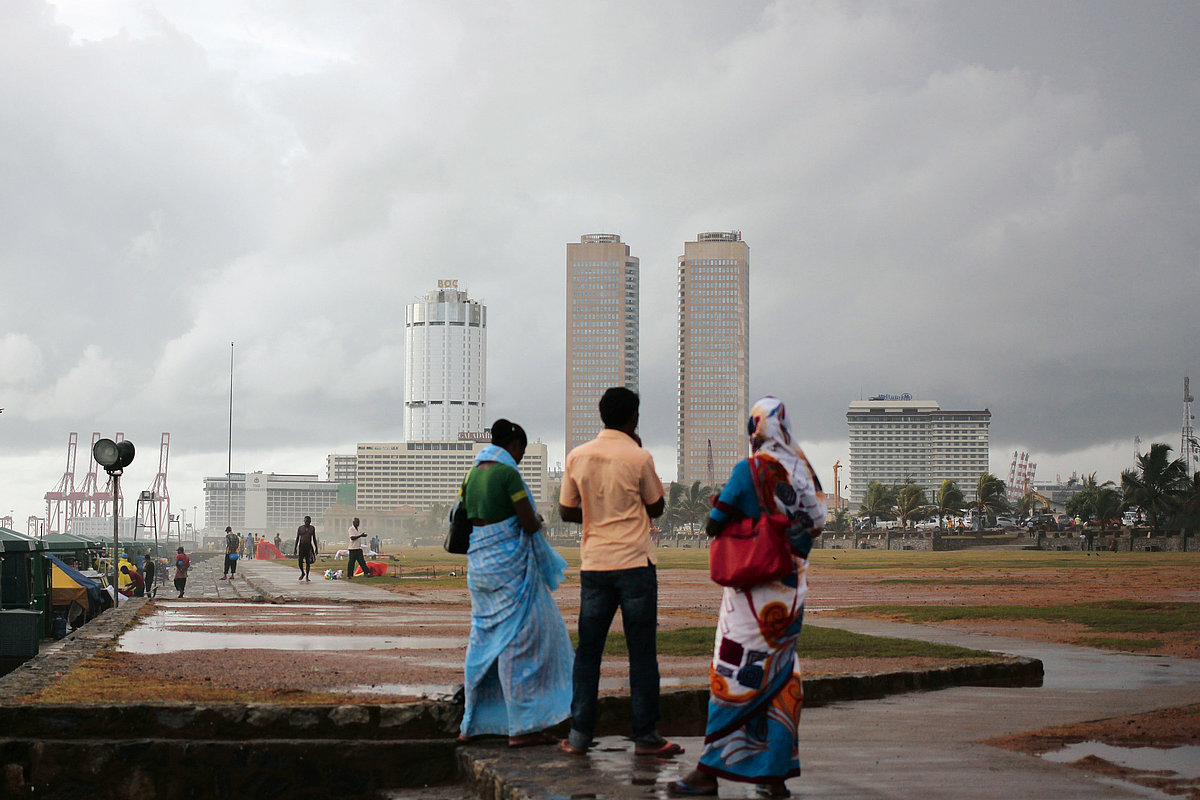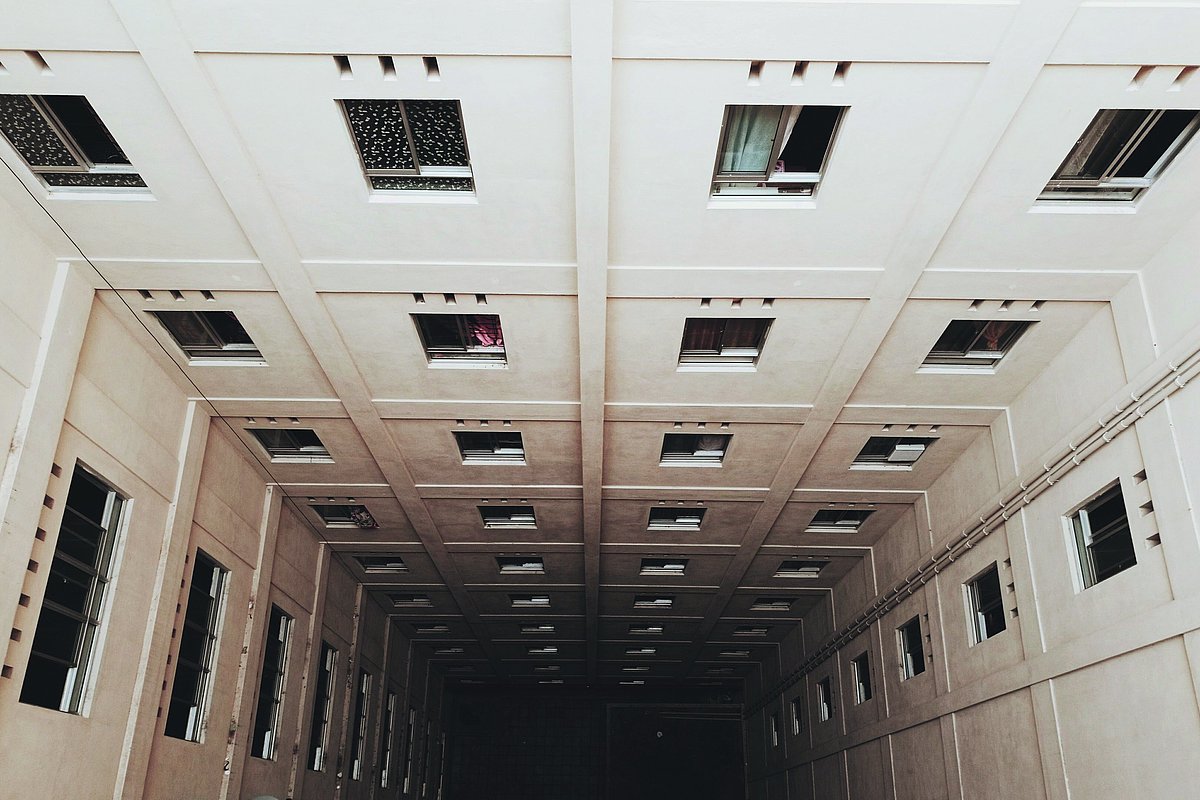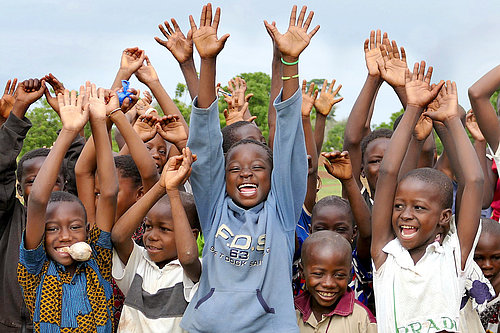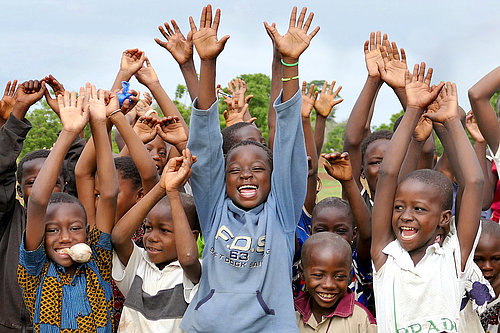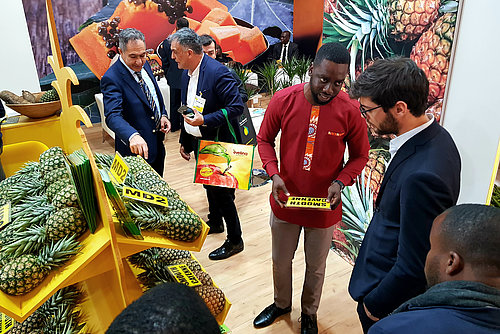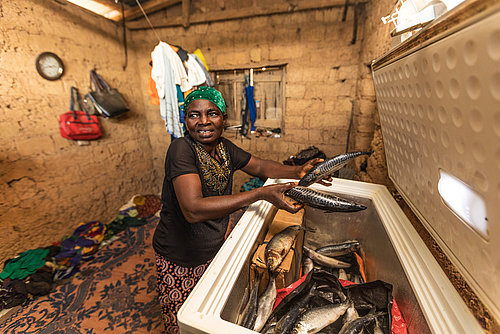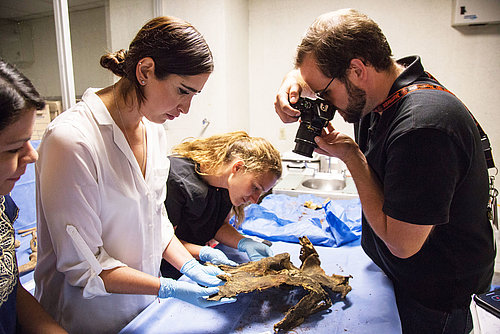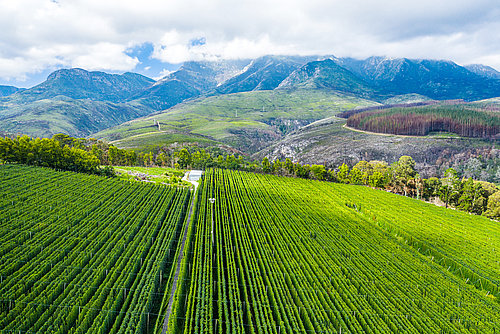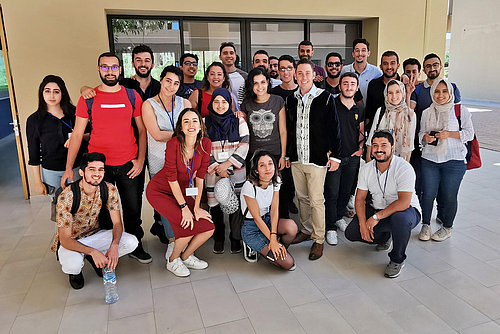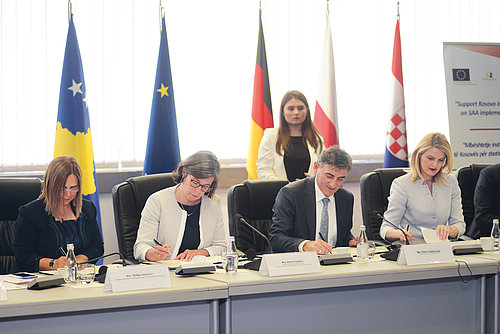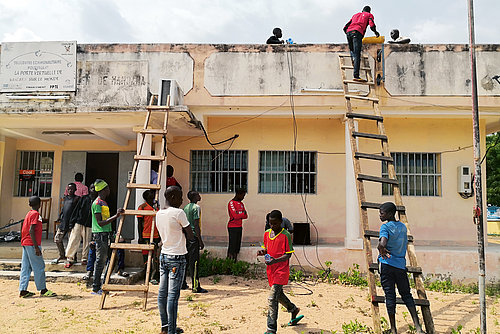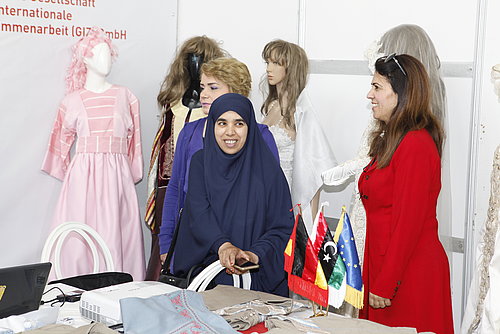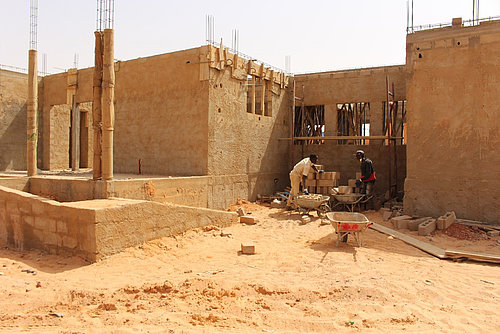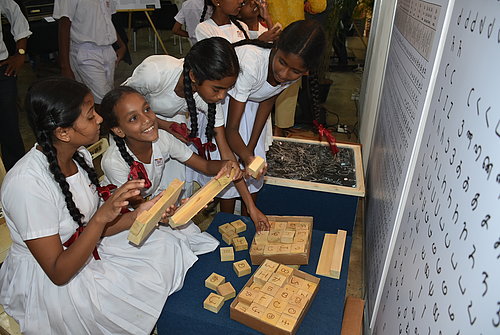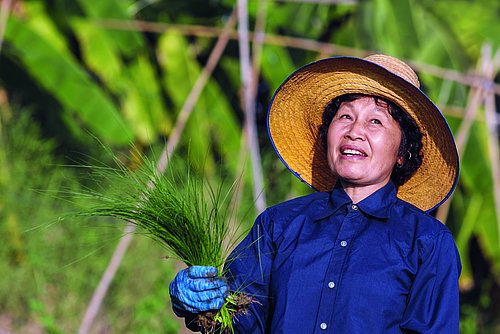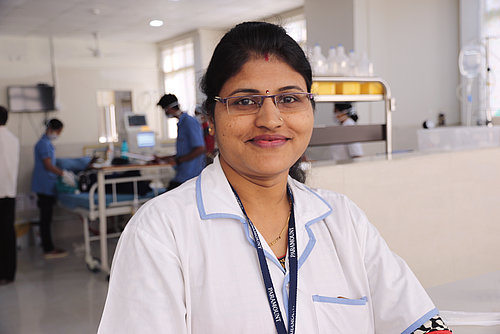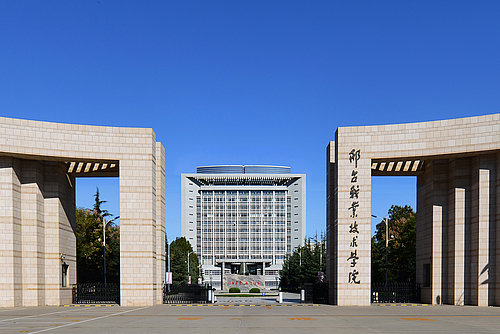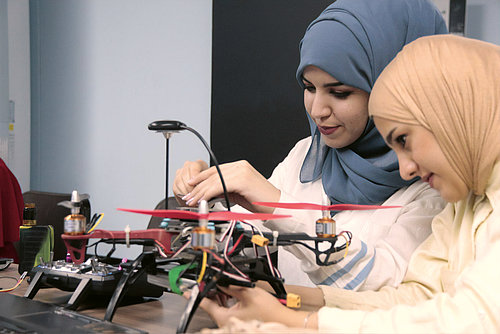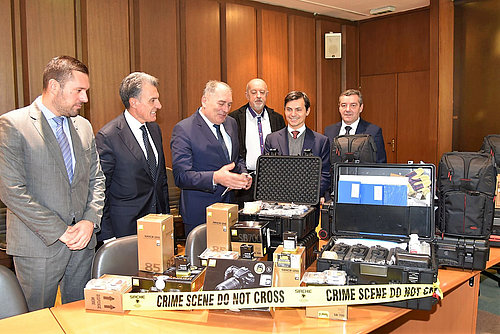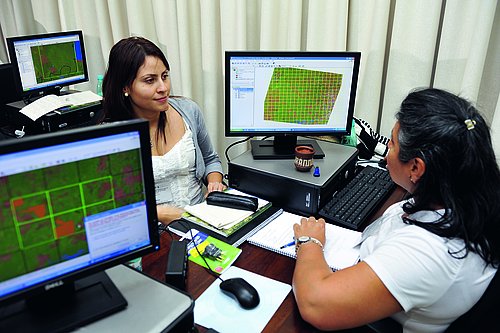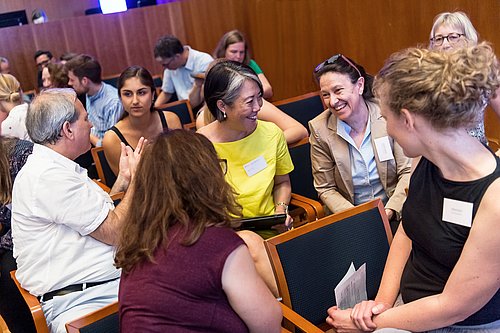Lasting reconciliation is at the heart of GIZ’s work.
A country that had seemed to have settled into a period of calm found itself back in the international headlines in the wake of the Easter Sunday attacks in 2019. The repercussions of the attacks highlighted just how fragile Sri Lanka’s peace is. Ethnic divides re-emerged in Sri Lanka 10 years after the lengthy civil war ended. The top priority of the reconciliation programme, which is funded by the European Union and German Federal Foreign Office, is to make sure that civil war does not break out again.
‘It’s the first time I’ve visited a museum in Sri Lanka that envisions history as a multifaceted complex of events and not a linear view of the past.’
Chandrika Bandaranaike Kumaratunga Sri Lanka’s former President (pictured on the right), on the mobile history museum (© GIZ)
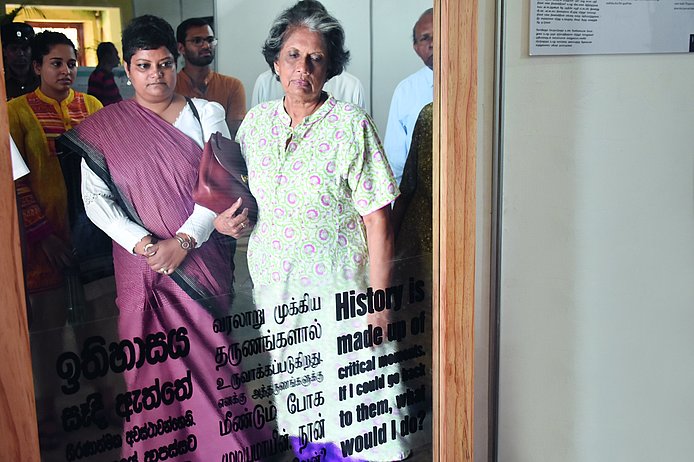
GIZ is working here in cooperation with the British Council to support the process launched by the Sri Lankan Government in 2015. Delving into the root causes of the conflict plays a critical role here: together with its partners, GIZ designed a mobile history museum that tours the island. It had already reached around 20,000 people from all population groups by 2019. Moreover, artists, film directors, musicians and community theatre groups receive support in using their art to facilitate constructive dialogue on reconciliation, national identity and diversity. This approach is also promoting public discourse, laying the groundwork for social reconciliation that has a stabilising effect. But quick help is needed too: immediately after the attacks, GIZ assisted victims and relatives and worked with young people to counteract hate speech on social media.
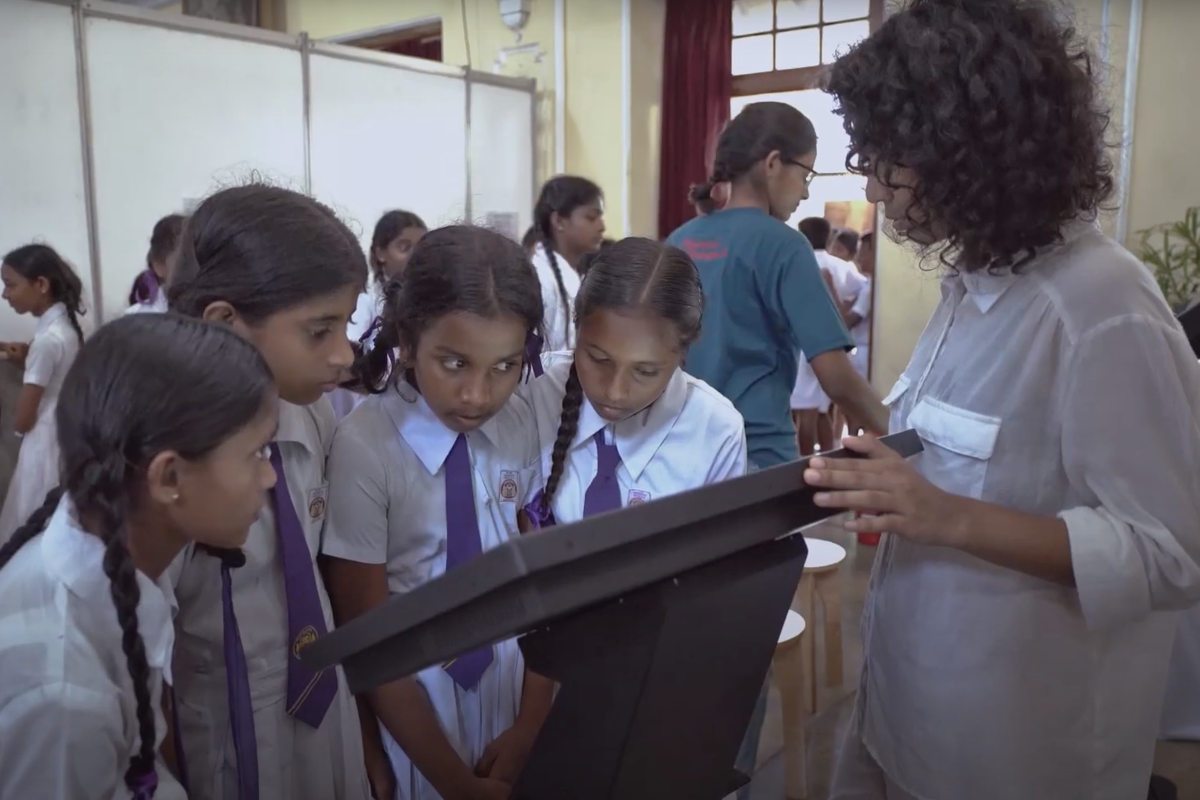
Learn about the mobile museum. (In English, Sinhalese and Tamil with subtitles)
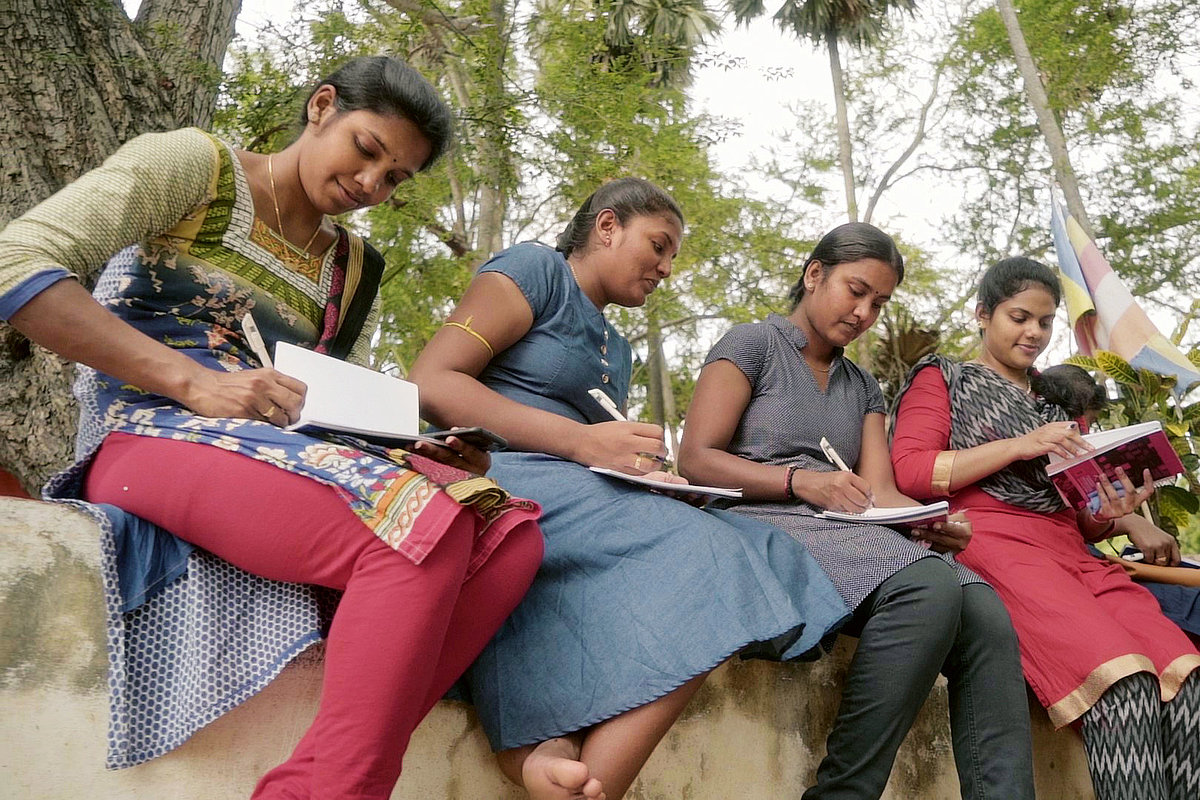
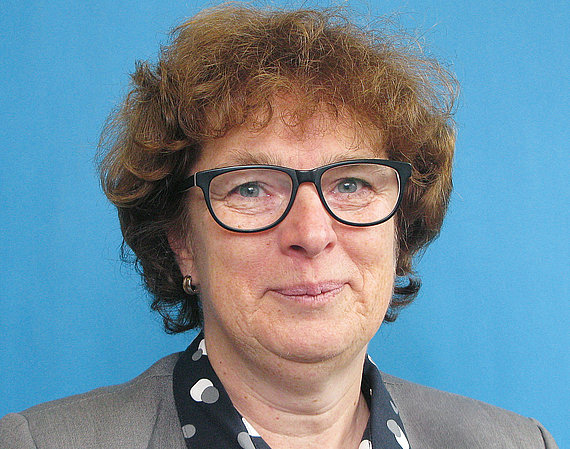
An interview with Heike Thiele
‘We need to think about projects more from a political perspective and tailor their design and implementation more closely to the political process.’
Germany is supporting Sri Lanka’s Government in its work on the national reconciliation process. What role is it playing?
Alongside encouraging a reflective, wide-ranging culture of remembrance after the civil war between the Tamils and the Sinhalese ended, the Federal Foreign Office is also supporting reforms to the justice and security sector. This makes Sri Lanka one of the few countries in Asia where all three of the German Government’s strategies can be applied in the context of crisis prevention, conflict management and peacebuilding.
What can GIZ do to help?
As a federal enterprise, GIZ works in similar contexts to the Federal Foreign Office and has extensive expertise and experience of implementation as a result. Together with our robust networks on the ground, this is a highly valuable tool for Federal Foreign Office projects. Since foreign policy backed by practical, context-specific action is involved here, we need to think about our projects more from a political perspective and tailor their design and implementation more closely to the political process.
What kinds of challenges exist when working in a fragile context like Sri Lanka?
Compared with other countries in the region, Sri Lanka has a high level of development, but its society is deeply divided after a civil war lasting close to 30 years. Ethnic minorities, in particular, do not yet have full and equal access to all institutions, even more than a decade after the civil war ended. Nationalistic voices are also mobilising against Muslims, mainly on social media.
Which element of the project made the greatest impression on you?
The Archives of Memory is a core element of the project. This collection inside the mobile museum showcases private mementoes from eyewitnesses over the 70 years since Sri Lanka gained independence. It gives visitors very tangible and poignant access to what are sometimes competing recollections of events in history, making it easier to show empathy and engage in reconciliation.
Why do you think that interaction between foreign policy and development policy work is so important?
Adopting an integrated approach, we strive to use all of the German Government’s instruments coherently in fragile contexts in order to prevent crises, solve conflicts and build peace. All basic documents rightly expect this: our crisis guidelines, for instance the White Paper on German Security Policy, the EU’s Global Strategy, the UN sustaining peace approach and the Pathways for Peace study undertaken by the United Nations and the World Bank. Experience teaches us that we nevertheless do not reach our actual goals often enough. But without coordination and efforts to act in sync with national stakeholders and, above all, with regional and international actors, there would be too much of a risk of achieving the exact opposite: an escalation in political conflict or a prolongation of armed clashes. That’s why harmonised interaction between all instruments is essential.
Where do you think the chances of overarching integrated cooperation lie? And what role does GIZ play in this?
When all the cogs in the wheel work together properly, we have a greater chance of achieving joint strategic goals. GIZ is an important implementing body for us; it has an excellent reputation and an extensive network in virtually all of the countries where we work. It is impossible to imagine the German Government being involved in modern crisis engagement without GIZ.
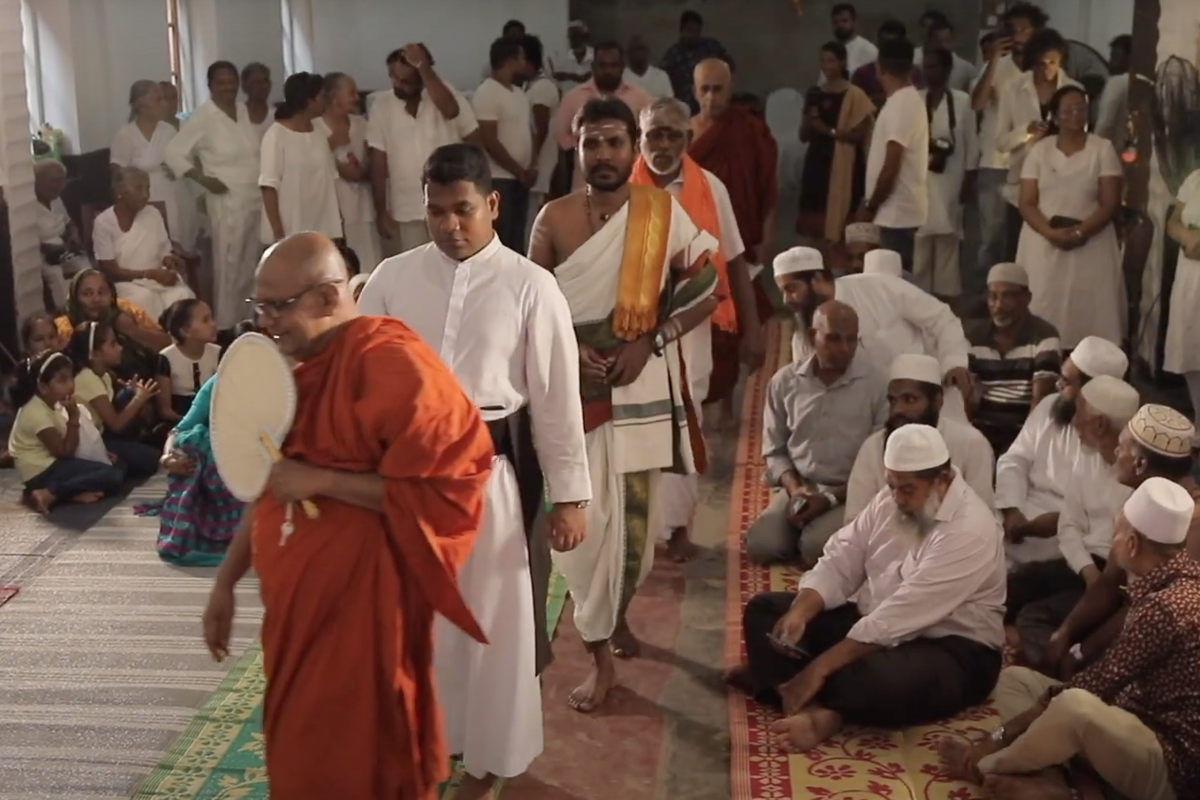
A youth initiative has brought together people from different ethnic and religious backgrounds. (In English and Sinhalese with subtitles)
Looking & questioning
The Sri Lankan photo artist Abdul Halik Azeez wants to reach people beyond the bounds of language. He is taking part in the mobile museum It’s About Time, which is receiving GIZ support.
Abdul Halik Azeez speaks all of his home country’s official languages: Sinhala, Tamil and English. That’s not common, even 10 years after the civil war between the Sri Lankan Government and Tamil separatists came to an end. ‘I have always had friends from all population groups,’ says 35-year-old Azeez who comes from a Muslim family in the centre of the island. ‘But many people in the Tamil north do not understand Sinhala, and many Sinhalese people do not speak Tamil.’ And English is often a question of educational opportunities. In a place where linguistic communication is already a hurdle, he is taking a different approach to overcoming differences: ‘Art can be one way to make progress,’ he says.
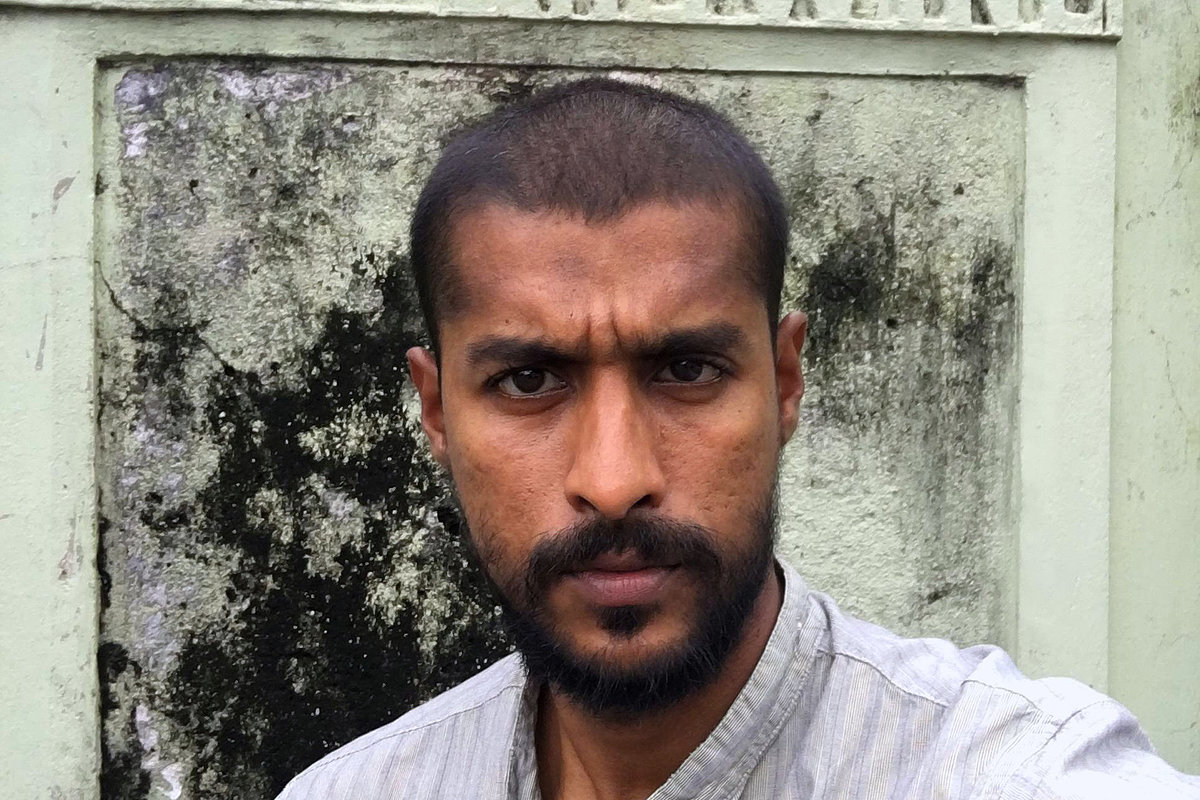
(© Abdul Halik Azeez)
This is a perfect fit with the notion behind It’s About Time, an interactive mobile museum that has been touring the island since February 2019. It is part of a larger project that GIZ is implementing to support the reconciliation process in Sri Lanka on behalf of the German Federal Foreign Office and the EU (and in partnership with the British Council). Depicting the past from different perspectives and establishing dialogue between different generations and ethnic groups is also especially important to the initiative. To this end, the museum displays historical documents, everyday items, eyewitness reports, traditional food and works of art to illustrate the events of the past 70 years since Sri Lanka gained independence from Britain.
Artistic complexity and direct impact
Abdul Halik Azeez contributed a series of photos entitled ‘Java Lane, vanishing with old Colombo’ to the exhibition. These compelling pictures show the transformation of a district in the island’s capital that was once home to a Muslim minority. These people were evicted from their houses to make way for new buildings. The loss of their original homes is something that many exhibition visitors can relate to. Urbanisation and the self and modernity are typical artistic themes addressed by Azeez, who has previously exhibited at the Edinburgh Festival, the Karachi Biennale and the Saskia Fernando Gallery in Colombo.
The photo artist is impressed with It’s About Time. ‘The team has managed to create a wonderful mixture of artistic complexity and direct impact.’ People can contemplate works of art created by artists from all segments of the population there. And afterwards they can try on historical garments and take souvenir photos in the photo studio. Sometimes it is good to try on someone else’s shoes to gain a better understanding. Without needing to say a single word.
Strengthening reconciliation processes in Sri Lanka
Sri Lanka: Looking back and to the future
Watch the video It’s About Time, Nittambuwa (In English, Sinhalese and Tamil with subtitles)
Insights into our projects in 2019
We are active in some 120 countries with 1,600 projects.
Discover the world of GIZ by learning about examples of projects undertaken in the 2019 reporting year.
We are active in some 120 countries with 1,600 projects.
Discover the world of GIZ by learning about examples of projects undertaken in the 2019 reporting year.
Are you interested in other GIZ projects?
